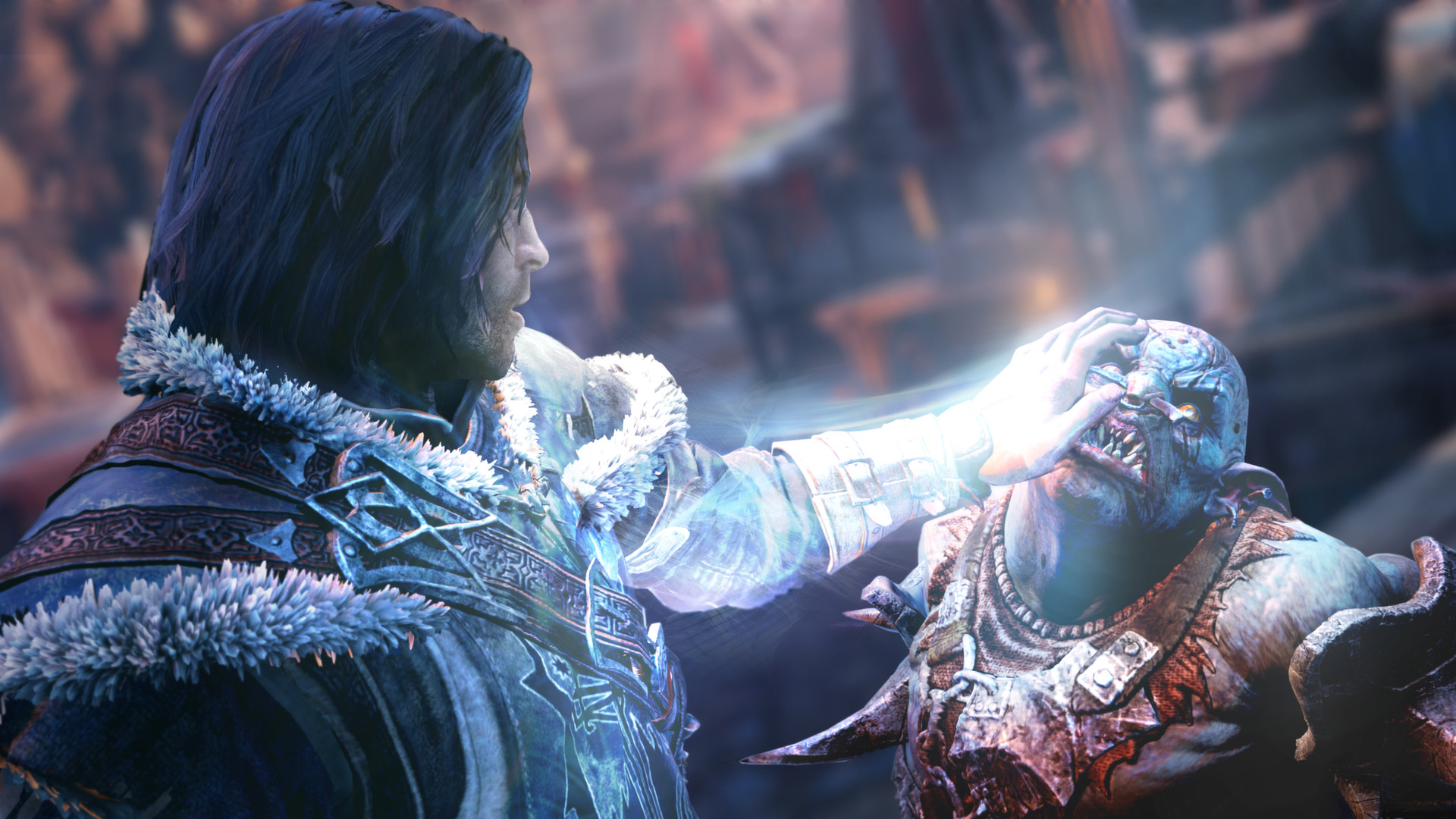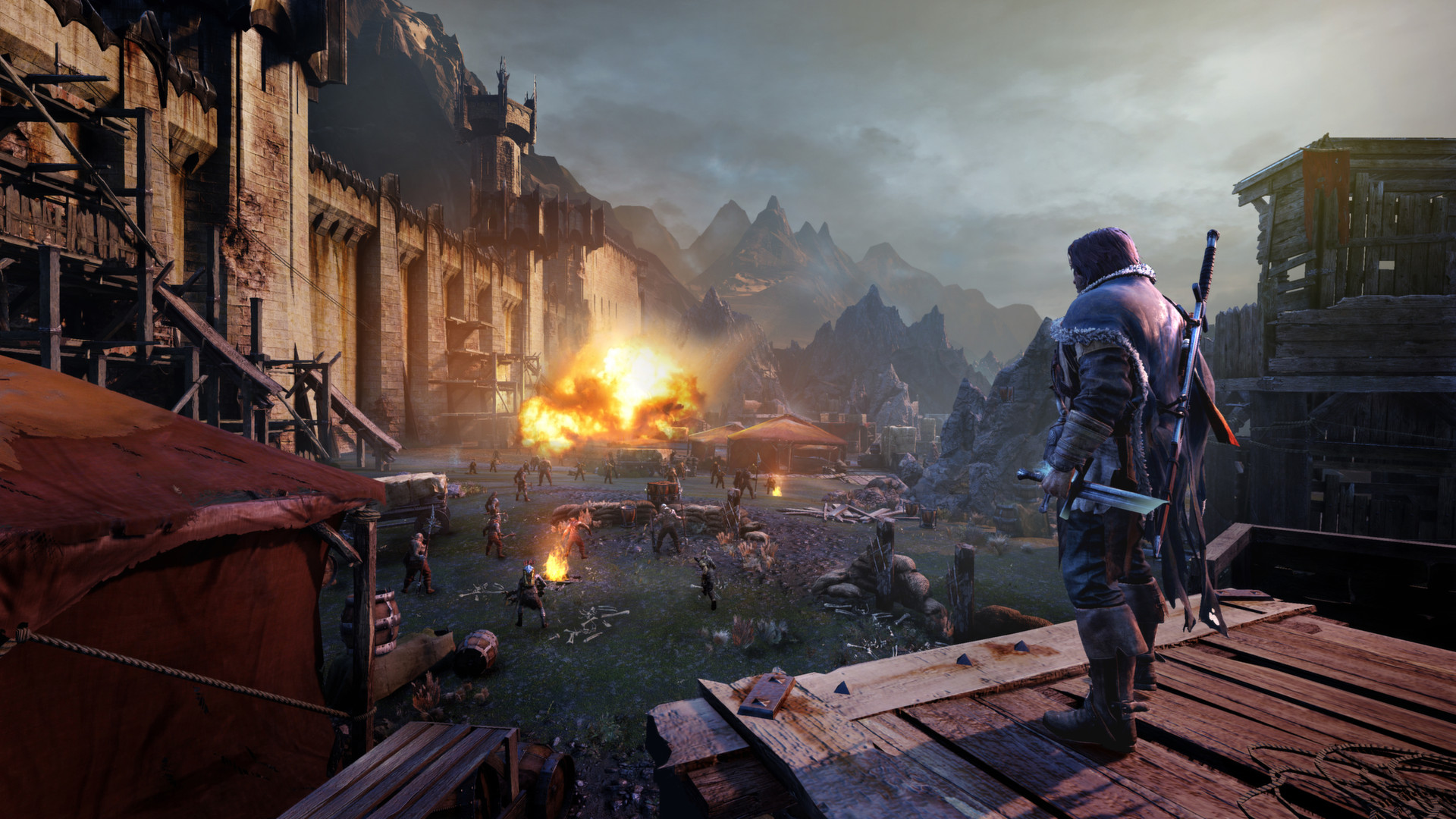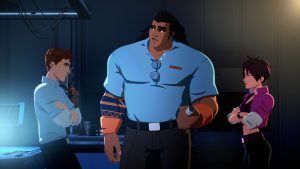
In September, Middle-earth: Shadow of Mordor will turn ten years old, but if someone had told you a decade ago that the game would go on to become one of the most beloved experiences of its kind, and that it would continue to be a fan favourite ten years later, you’d have found that hard to believe. Coming at a time where there were no guarantees that a game based on a major license would be good (or even decent), Middle-earth: Shadow of Mordor took the industry at large by surprise, not only because it was a perfectly well-made and enjoyable game in and of itself, but also because it turned out to be a surprisingly unique and original experience.
What’s surprising is that even now, a decade on from its release, there’s nothing else out there that scratches the same itch as Shadow of Mordor. And that, of course, is down almost entirely to one thing in particular: the Nemesis system. Back in late 2014, Shadow of Mordor’s Nemesis system was all everyone was talking about, and at the time, it seemed almost guaranteed that the game had opened the floodgates for a deluge of pretenders that would come along and try to emulate what the Nemesis system had managed to do.
Even now, it’s easy to see where all that hubbub came from. The Nemesis system has lost little of its charm. Dynamic, emergent storytelling isn’t necessarily a rarity in games, but very rarely have we seen it implemented the way it was in Shadow of Mordor. Each battle against every orc felt like it came with added stakes. You might burn an orc to a crisp during a fight, but it somehow manages to get away, and the next time you cross swords, it’s going to remember what you did and come after you with everything it’s got. In another fight, an uruk might best you and kill you, following which it gets promoted through the ranks in Sauron’s army, making it an even tougher foe to take on in your next battle.
The Nemesis system kept track of all of that. Every time you fought against its procedurally generated orcs, the game would remember the outcome of the battle, and would then use that to fuel a dynamically changing ministory, reacting to your actions, victories, and defeats. On a wider scale, these threads would combine in the web of Sauron’s larger armies, with orcs rising and falling through the ranks based on your encounters with them. By dominating and interrogating arcs, players could even turn orcs against each other, creating yet more chaos and infighting, which, in turn, would create more ripples in the constantly evolving narrative.
Shadow of Mordor took an excellent idea and implemented it to perfection, and the experience it ended up delivering as a result was unlike anything out there. Yes, you had systemic games and games with emergent gameplay, but the Nemesis system created a distinct brand of gameplay and dynamic storytelling that set it apart from what was, even then, a saturated open world market (if not to the same degree as today).
It’s also worth pointing out that the Nemesis system did a lot of the heavy-lifting in Shadow of Mordor, because without it, it would be a much less remarkable game. With fun combat and traversal and thanks to the fact that it was a Lord of the Rings game, Shadow of Mordor obviously did have strengths in other areas as well, but outside of the Nemesis system, it was certainly lacking in originality. Its open world and traversal mechanics were strikingly similar to Assassin’s Creed, its combat bore a strong resemblance to the Batman: Arkham games, and its side quests and optional activities were pretty standard open world fare, by and large. The Nemesis system took what was a solid game and turned it into a legitimately unforgettable experience.
The game itself obviously knew what its biggest strength was as well. Developer Monolith Productions smartly designed many of Shadow of Mordor’s most crucial systems and mechanics around the Nemesis system. Some of those were the obvious ones that we’ve already spoken about here – like hammering cracks in Sauron’s forces and interrogating orcs to gain information on their leaders – but beyond those, other, ancillary mechanics tied into that core as well. For instance, progression – whether by gaining bonus XP or acquiring powerful runes – was often tied to uncovering and exploiting orc leaders’ weaknesses. Meanwhile, players could also track down orcs that had killed other players in special Vendetta missions, adding another wrinkle to the game’s emergent storytelling tendencies. Time and time again, in more ways than one, Shadow of Mordor would keep finding ways to make the Nemesis system shine.
Of course, no one could have predicted back when Shadow of Mordor first came out that it would still be as unique in ten years’ time as it was back then. Countless people have wondered countless times over the last decade why we haven’t seen more games trying to do something similar to the Nemesis system, and we continue to be baffled by that as well. Sure, we got Middle-earth: Shadow of War in 2017, which obviously followed in its predecessor’s footsteps, but from its grindy progression mechanics to its bloated open world to its aggressive monetization, it had more than a few issues that prevented it from touching the same heights as Shadow of Mordor.
Thankfully, those who’ve been desperate to see the Nemesis system in another open world game do have something to look forward to. Shadow of Mordor and War developer Monolith Productions is currently working on Wonder Woman, which WB Games has confirmed is going to be a single player open world game that will use the Nemesis system. Exactly how the game will do that in its Themyscira setting remains to be seen, but it’s an intriguing prospect nonetheless, to say the least.
Beyond that, there’s also EA and Cliffhanger Games’ single player open world Black Panther game, which is being led by Kevin Stephens, who was previously the studio head at Monolith Productions during the Middle-earth games’ development. Though Black Panther isn’t using the Nemesis system per se, it’s using something that does sound a whole lot like it. Cliffhanger Games has dubbed it the “open story” system, and describes it as a “highly innovative” system for narrative design and presentation that will make use of “interconnected systems” revolving around dialogue and conversation trees. Details are currently obviously scant, but given the studio leadership’s pedigree, the idea of an open world game set in Wakanda that tries to do something similar to what the Nemesis system did is an interesting one.
And that’s really what it all comes down to: Shadow of Mordor captured the strengths of its central gameplay pillar so perfectly, we’ve been chasing that high ever since. Nothing has managed to give us that same feeling again – hell, nothing has even really tried – which has only made us look back on Shadow of Mordor itself that much more fondly.
Note: The views expressed in this article are those of the author and do not necessarily represent the views of, and should not be attributed to, GamingBolt as an organization.
















